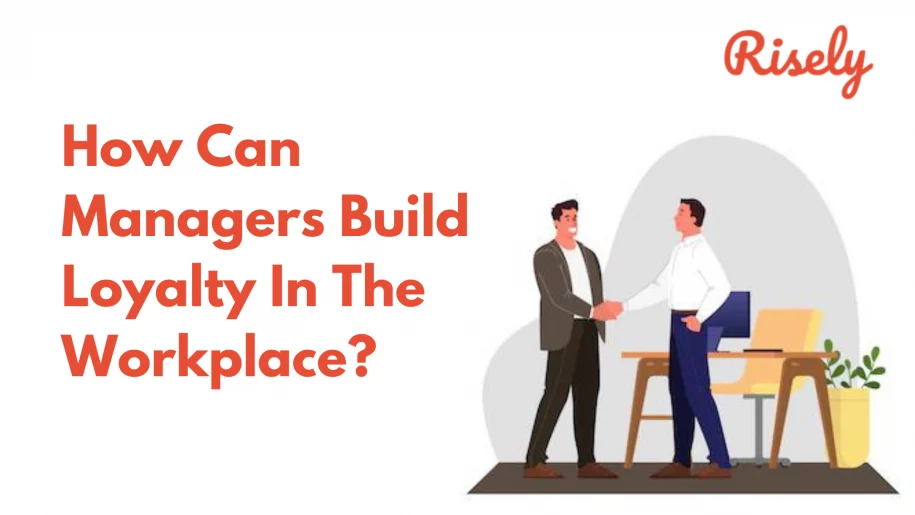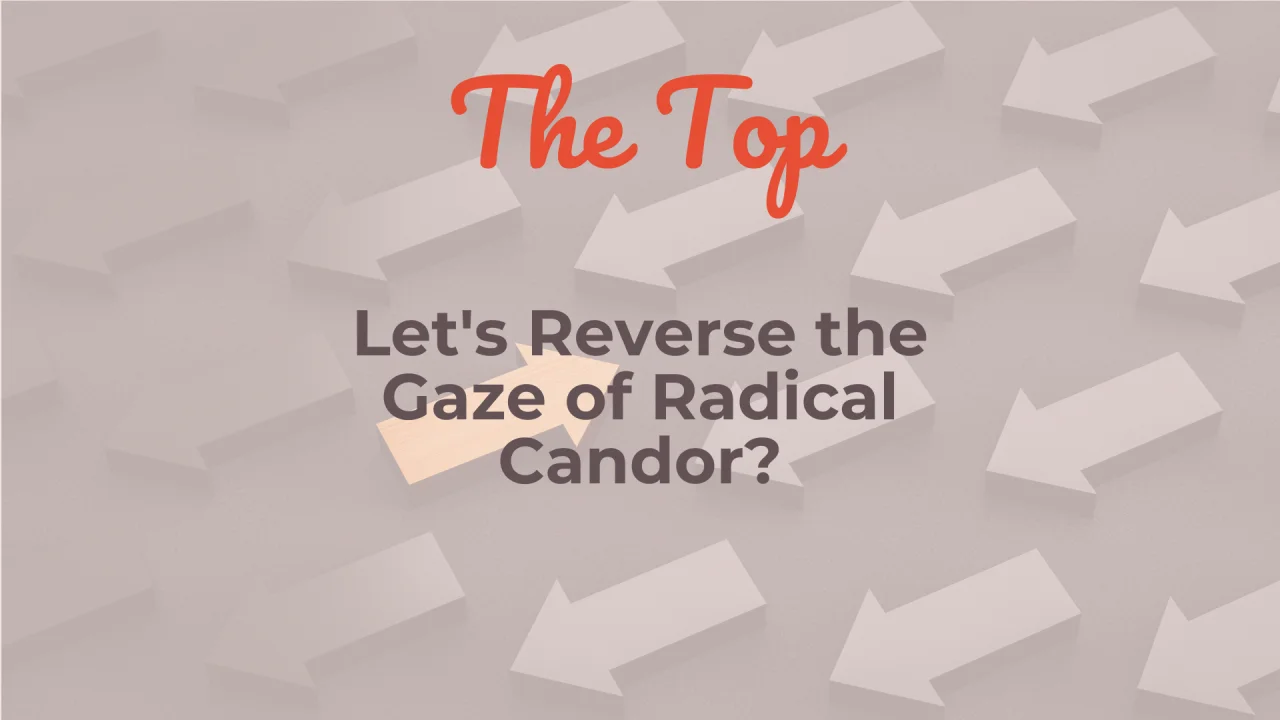How Can Managers Build Loyalty In The Workplace?
Undoubtedly, employee loyalty is essential for managers and leaders in the workplace. A workforce loyal to their managers and leaders is more likely to be productive, efficient, and committed to their work. In fact, studies have shown that employee loyalty can have a positive impact on business performance in a number of ways. Here, we’ll highlight why employee loyalty is so important and share tips on how managers and leaders can build it in their teams. Keep reading to learn more!What is employee loyalty?
In the simplest terms, employee loyalty is the existence of a positive relationship between the team and the employee that ensures their motivation and happiness in continued engagement. Employee loyalty is a vital part of any successful team. It ensures that employees are motivated and engaged, leading to improved performance and increased turnover rates. A loyal workforce helps companies maintain lower costs, as they are more likely to be flexible and adaptable when needed.What are some qualities of loyal employees?
Managers face the challenge of building loyalty in the workforce. It’s not easy, but it’s essential for a healthy and productive work environment. To begin with, we can take note of the qualities of loyal employees. Loyal employees are dedicated to their job and take pride in their work. They have a good attitude, are motivated, and strive for continuous improvement. Additionally, they exhibit strong team skills and can be relied on to handle complex tasks without issue. When looking for loyal employees, it is essential to focus on the following qualities:- Commitment: Employees are willing to make an effort every day, if necessary, not only to meet but exceed the expectations of their managers frequently.
- Dedication: Employees should be passionate about what they do and feel a sense of ownership over their work; this will motivate them to perform at their best every day.
- Accountability: Employees should feel like they can contribute something unique to the team while also feeling accountable for results enacted throughout the organization.
- Ethical behavior: Employees should adhere to company values and standards in their personal and professional lives. It will create a positive work environment where employees feel comfortable challenging each other and raising concerns.
- Team player: Employees who are team players value the success of the whole over their achievement. They are willing to put in the effort necessary to help the team succeed and take pride in their contributions, no matter how small they may seem.
- Envision a future with the team: When looking for loyal employees, it is essential also to envision the employee’s future in the company. Loyal employees envision a future where they consistently are consistently a part of the team.
What is the importance of employee loyalty?
Employee loyalty is one of the most important things you can provide your business. It not only boosts employee morale and productivity but also establishes trust and credibility between you and your employees. Employees are more likely to be productive and motivated when they are committed to their jobs and feel like they’re part of something larger than themselves. Furthermore, employee loyalty breeds trust, which leads to strong corporate relationships. Loyalty encourages them to put their best foot forward daily and helps create a positive work environment. When employees feel like they are part of a community that supports and cares for each other, it creates a powerful force multiplier. It ultimately leads to better customer service, higher-quality products, and enhanced brand awareness. Additionally, employee loyalty can lead to increased hire rates as potential candidates want to join an organization where they know they will be valued and respected. Loyal employees contribute massively to enhancing employer equity.How to build loyalty in the workplace?
Creating loyal employees is key to a successful business. Managers can build loyalty by providing good service, being available to employees, and being honest. Building a good relationship with your staff is essential because it will lead to a more productive workplace. Rewards are also an effective way to keep employees happy and motivated. By taking these steps, managers can create a strong foundation for building long-term loyalty in their workforce.Build a welcoming environment
One of the most important things you can do to build loyalty in the workplace is to foster a team environment. You need to create an environment where everyone feels comfortable expressing their ideas and opinions and roles are clearly defined. Being part of a team allows workers to share experiences, positive or negative so that there is a mutual understanding within the organization.Appreciate your employees
You should also ensure that employees feel appreciated for their contributions, big or small. Employees who explicitly understand that their efforts are valued by their supervisors significantly improve performance. In addition, employees who feel appreciated are more likely to stay loyal to their organizations. Make sure to give specific, objective, relevant feedback to their work performance and carries a positive tone.Be honest and transparent
One of the most important things you can do to build loyalty in the workplace is to be honest with your employees. It means being open about what’s happening inside the company and how decisions are made. It also means being forthcoming about changes that might affect employee productivity or satisfaction.Other Interesting Reads
Pay fair
Additionally, it is essential to offer competitive salaries and benefits, including health insurance premiums that cover all medical expenses. And finally, be open about your company’s policies, so employees know what they are entitled to and don’t feel like they are being taken advantage of. These measures will go a long way in creating loyal workers who will stick with your organization through thick and thin.Encouraging creativity and risk-taking
Finally, fostering an environment where employees feel free to explore their creative and risk-taking sides is essential. It means allowing them to take on new opportunities, try new things, and fail without fear of retribution. In other words, give your employees the space they need to grow and learn professionally and personally. A creative environment encourages innovation and teamwork initiatives, leading to better products or services and higher morale among team members.What happens when employees are not loyal?
When employees are not loyal, it can have a significant negative impact on the company. Not only is this bad for morale, but it also leads to decreased productivity and increased conflicts. A lack of loyalty can seriously damage your business. When employees are not loyal, it creates a rift between management and the workers, leading to lower productivity and losses. Additionally, it can be hard to motivate employees when they no longer have faith in their company or its future. All in all, it can hurt the company’s reputation, leading to attrition and hiring challenges. Losing good employees can mean losing customers, which in turn will lead to more significant financial losses. In addition, bad publicity may damage the company’s image and cause potential investors to shy away from investment opportunities. Therefore, creating a workplace culture that values loyalty and encourages employee satisfaction is essential.Conclusion
Employee loyalty is one of the most critical factors in employee retention and satisfaction. Managers need to understand the importance of employee loyalty and build it into their workplace culture. Managers can create a positive environment that encourages employee satisfaction and retention. Make sure to read through the blog to find out more about the different ways in which building loyalty can help managers. We hope you have found this blog helpful!Grow with your teams by leaps and bounds with the correct mindset.
Get Risely’s free growth mindset toolkit for managers to unlock hidden possibilities for your team.
Other Related Blogs
Let’s Reverse the Gaze of Radical Candor?
Let’s Reverse the Gaze of Radical Candor? Have you heard about Radical Candor? It’s a book by Kim Scott that first came out in 2017. The tagline is “Caring Personally…
New Managers and Small Teams: A Match Made Not Made In Heaven
New Managers and Small Teams: A Match Made Not Made In Heaven My team currently has nine people, including myself. That sounds pretty simple, right? After all, exactly how much…
What Is Group Coaching? Elevating Team Dynamics to New Heights
In this blog, we’ll explore what is group coaching, how it elevates your team’s performance and transforms organizational culture to create a foundation for success and resilience. … Read More
Hiring a Sales Team: 7 Best Practices for Hiring Managers
Hiring a Sales Team: 7 Best Practices for Hiring Managers Are you a hiring manager looking to build a dynamic sales team that can take your business to new heights?…


